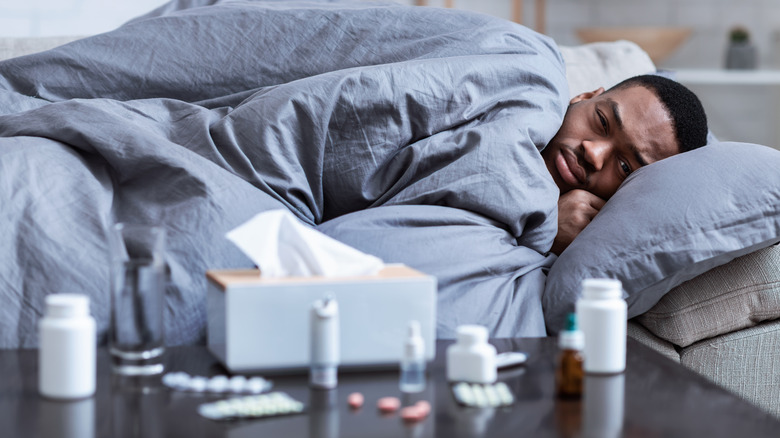You Might Have E. Coli If This Happens To You
Contrary to popular belief, not all strains of Escherichia coli or E. coli are as harmful as you may think (per Everyday Health). This bacteria group that lives in food, the intestines, and the environment can actually cater to good gut health because of its vitamin K and vitamin D production, according to a study in eLife. Nevertheless, it goes without saying that not all E. coli strains are beneficial.
The Centers for Disease Control and Prevention (CDC) says that some strains are pathogenic, which means they can lead to issues such as diarrhea and illnesses outside of the intestines. This type of E. coli is commonly contracted through eating contaminated food, drinking contaminated water, or being in contact with people or animals that have it. There are several types of pathogenic E. coli: Shiga toxin-producing (STEC) or Verocytotoxin-producing (VTEC), enterotoxigenic (ETEC), enteropathogenic (EPEC), enteroaggregative (EAEC), enteroinvasive (EIEC), and diffusely adherent (DAEC).
E. coli symptoms and treatments
Healthline notes that symptoms of E. coli usually show up within 3 to 4 days of being infected. Typically, symptoms last for about a week but can stick around for as long as 10 days. Moderate symptoms of E. coli can include abdominal cramps, diarrhea, gas, nausea, fatigue, loss of appetite, fever, and sometimes vomiting. More serious symptoms involve bruising, dehydration, pale skin, decreased urine, and blood in the urine.
It's important to see a doctor if you have moderate symptoms that last longer than 10 days or if you have any severe symptoms. Left untreated, E. coli can cause serious problems such as urinary tract infection (UTI), abdominal infection, pelvic infection, pneumonia, bacteria in the bloodstream, and bacteria in the brain.
It's not common for doctors to prescribe medications for E. coli because they can cause antibiotic resistance in which medicine isn't effective. Getting plenty of rest and staying hydrated should be a priority. According to Live Science, you may also want to drink cranberry juice to help ensure a UTI doesn't ensue.


